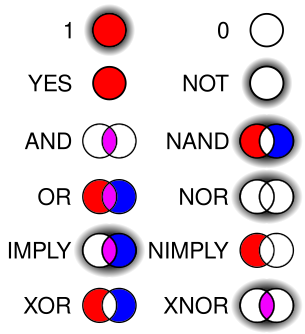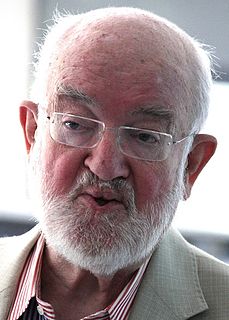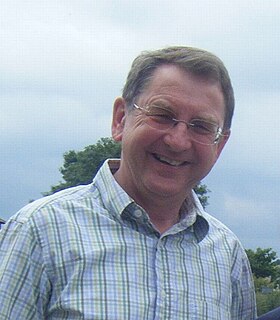Related Research Articles

The Z notation is a formal specification language used for describing and modelling computing systems. It is targeted at the clear specification of computer programs and computer-based systems in general.

Sir Charles Antony Richard Hoare is a British computer scientist. He developed the sorting algorithm quicksort in 1959–1960. He also developed Hoare logic for verifying program correctness, and the formal language communicating sequential processes (CSP) to specify the interactions of concurrent processes and the inspiration for the programming language occam.
In computer science, communicating sequential processes (CSP) is a formal language for describing patterns of interaction in concurrent systems. It is a member of the family of mathematical theories of concurrency known as process algebras, or process calculi, based on message passing via channels. CSP was highly influential in the design of the occam programming language and also influenced the design of programming languages such as Limbo, RaftLib, Go, Crystal, and Clojure's core.async.
In computer science, program derivation is the derivation of a program from its specification, by mathematical means.

Per Brinch Hansen was a Danish-American computer scientist known for his work in operating systems, concurrent programming and parallel and distributed computing.

Logic in computer science covers the overlap between the field of logic and that of computer science. The topic can essentially be divided into three main areas:

Jonathan P. Bowen FBCS FRSA is a British computer scientist.
Clifford "Cliff" B. Jones is a British computer scientist, specializing in research into formal methods. He undertook a late DPhil at the Oxford University Computing Laboratory under Tony Hoare, awarded in 1981. Jones' thesis proposed an extension to Hoare logic for handling concurrent programs, rely/guarantee.

Professor Dines Bjørner is a Danish computer scientist.
In computer science, unbounded nondeterminism or unbounded indeterminacy is a property of concurrency by which the amount of delay in servicing a request can become unbounded as a result of arbitration of contention for shared resources while still guaranteeing that the request will eventually be serviced. Unbounded nondeterminism became an important issue in the development of the denotational semantics of concurrency, and later became part of research into the theoretical concept of hypercomputation.
Professor James Charles Paul Woodcock FREng FBCS CEng CITP is a British computer scientist.
Unifying Theories of Programming (UTP) in computer science deals with program semantics. It shows how denotational semantics, operational semantics and algebraic semantics can be combined in a unified framework for the formal specification, design and implementation of programs and computer systems.
He Jifeng is a Chinese computer scientist.
Richard Bornat, is a British author and researcher in the field of computer science. He is also professor of Computer programming at Middlesex University. Previously he was at Queen Mary, University of London.
Michael Spivey is a British computer scientist at the University of Oxford.
Jim Davies is Professor of Software Engineering and current Director of the Software Engineering Programme at the University of Oxford, England.

Roland Carl Backhouse is a British computer scientist and mathematician. As of 2020, he is Emeritus Professor of Computing Science at the University of Nottingham.
Dr Ib Holm Sørensen (1949–2012) was a computer scientist who made contributions to the Z notation and B-Method.
References
- 1 2 "Series: Prentice-Hall International Series in Computer Science". LibraryThing. Retrieved 24 September 2019.
- ↑ "Prentice Hall International Series in Computer Science". Formal Methods Wiki. Wikia . Retrieved 30 March 2021.
- ↑ "PHISCS books". Formal Methods Wiki. Wikia . Retrieved 30 March 2021.